Beckley Foundation Team
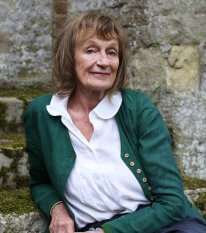
Amanda Feilding
Founder and Executive Director
Since its inception Amanda has led the Scientific and Policy Programmes. By establishing key research collaborations with some of the world’s most prestigious academic institutions, she has propelled the field forwards over the last 20 years, conducting several landmark studies, such as the world’s first LSD brain imaging study. Read more about Amanda and the history of the Beckley Foundation here.
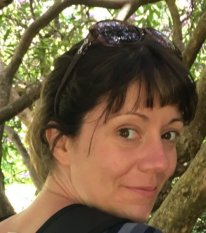
Valerie Bonnelle PhD
Scientific Assistant and Researcher
Convinced of the therapeutic potential of psychedelics, Valerie joined the Beckley Foundation in 2017 to contribute actively to this exciting and much-needed field of research, through the coordination of the Beckley Foundation’s many research programmes.
During her PhD at Imperial College, Valerie studied the neural underpinnings of cognitive changes observed following brain injury using neuroimaging. She then moved to the University of Oxford to investigate how differences in brain function and structure may underlie inter-individual differences in motivation.
With a keen interest in spiritual practices, she is hoping psychedelic research may contribute to bridging the gap between ancient wisdom and modern medicine.
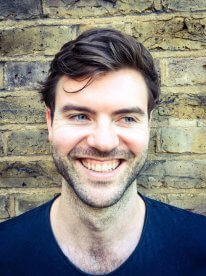
Sasha Frost
Content Manager
As the Content Manager for the Beckley Foundation, Sasha explores effective ways to tell stories about psychedelic science and drug policy reform. With a background in literature and psychology, he is keen to make use of emerging forms of communication to inform the dialogue around drug prohibition and the place of psychedelics in modern society. Most recently Sasha has been creating videos and animations to disseminate the work of the Foundation. He has presented on reframing psychedelics and about psychedelics in film, TV and the media.

Irene de Caso
Scientific Officer
Having always been passionate about life, consciousness and the human psyche, Irene first studied biology, where she specialised in neuroscience, followed by an MSc and a PhD in Cognitive Neuroscience and Neuroimaging at the University of York.
During her PhD, she worked with Jonathan Smallwood at the Mind Wandering Lab, where she studied the relationship between excessive self-focused attention and impaired inhibitory control and how this relationship manifests in large-scale connectivity networks. In the latter stages of her career, she became fascinated by the therapeutic potential that altered states of consciousness such as meditation, holotropic breathwork or psychedelic experiences can have on the individual, leading her to complete a master’s in mindfulness applied to mental health and research. She is also the author of a popular science book titled “Psychedelics and Mental Health: The Neuroscience Behind a New Psychotherapy”. At the Beckley Foundation, she now assists Amanda, helping her advance the Foundation’s future lines of psychedelic research.
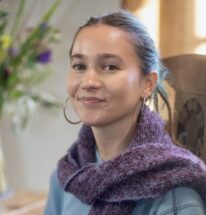
Alannah Hope Crockatt
Researcher and Assistant to the Director’
In her final year of a Chemistry Master’s degree, Alannah specialised in a computational chemistry research project, developing novel code to quantify the magnetic anisotropy of molecular oxygen.
She actively volunteers with PsyCare UK Welfare & Harm Reduction, a charity that supports individuals through challenging psychedelic experiences at music festivals, and recently led their latest fundraising campaign.
Alannah looks forward to expanding her creativity at the Beckley Foundation, building on her previous art studies to communicate themes brought about by the psychedelic experience and beyond.
Beckley Collaborators
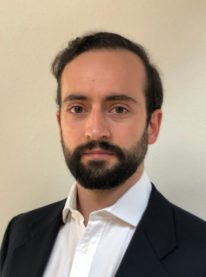
Matias Lopez-Portillo
Legal and Business
An Oxford University graduate, Matias has a background in public policy, business and consulting. Prior to working at the Foundation, he was a founder and director of a technology and public policy think tank focused on Latin America, and the VP of Business Strategy for a legal tech startup.
Podcast
- All
Links
- All
Support
- All
BIPRP
- All
Science Talk
- All
Amanda's Talks
- All
- Video Talk
- Featured
- 2016 Onwards
- 2011-2015
- 2010 and Earlier
- Science Talk
- Policy Talk
One-pager
- All
Music
- All
Amanda Feilding
- All
Events
- All
Highlights
- All
Psilocybin for Depression
- All
Current
- All
Category
- All
- Science
- Policy
- Culture
Substance/Method
- All
- Opiates
- Novel Psychoactive Substances
- Meditation
- Trepanation
- LSD
- Psilocybin
- Cannabis/cannabinoids
- Ayahuasca/DMT
- Coca/Cocaine
- MDMA
Collaboration
- All
- Beckley/Brazil Research Programme
- Beckley/Maastricht Research Programme
- Exeter University
- ICEERS
- Beckley/Sant Pau Research Programme
- University College London
- New York University
- Cardiff University
- Madrid Computense University
- Ethnobotanicals Research Programme
- Freiburg University
- Medical Office for Psychiatry and Psychotherapy, Solothurn
- Beckley/Sechenov Institute Research programme
- Hannover Medical School
- Beckley/Imperial Research Programme
- King's College London
- Johns Hopkins University
Clinical Application
- All
- Depression
- Addictions
- Anxiety
- Psychosis
- PTSD
- Cancer
- Cluster Headaches
Policy Focus
- All
- Policy Reports
- Advisory Work
- Seminar Series
- Advocacy/Campaigns
Type of publication
- All
- Original research
- Report
- Review
- Opinion/Correspondence
- Book
- Book chapter
- Conference abstract
- Petition/campaign
Search type